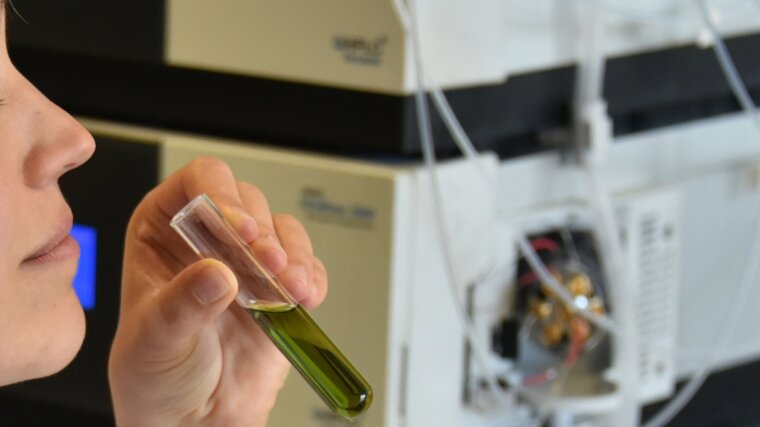
- Research
Published: | By: Axel Burchardt
The project "Smart Electronic Olfaction for Body Odour Diagnostics" - SMELLODI for short - which is funded by the European Union (EU) with almost 3 million euros, has just started. Over the next three years, the participating partner institutes from Germany, Israel and Finland want to jointly develop intelligent electronic sensors that can detect and digitally transmit healthy and pathologically altered body odours. This technology should pave the path for the digitalisation of the sense of smell.
Those whose body odour reminds one of garlic should consult a doctor quickly - it could be arsenic poisoning. A visit to the doctor is also advisable for those whose sweat smells foul - scurvy could be the cause. Body odours play an important role in life - as a social norm, in contact between baby and parents, or in recognising illness. Trained human noses extract a great deal of information from smells. But this olfactory process could also be taken over by electronic aids that permanently and inexpensively obtain important information through odour analysis.
Electronic noses (eNoses), as they are called, are already available for various areas of application, but a real breakthrough in the digitalisation of the sense of smell has yet to be achieved. Yet the electronic recognition of odours could revolutionise the healthcare sector, among other things. This is where the SMELLODI research project comes in.
Changes in body odour can indicate diseases
"Human body odours are influenced, among other things, by nutrition, current inflammatory processes and hormone balance," explains psychologist Prof. Dr Ilona Croy from the University of Jena, who is involved in the project together with Dr Alexander Croy from Jena's physical chemistry department. "Consequently, changes in body odour can provide clues to diseases - sometimes much earlier than through other diagnostic tools," says Ilona Croy. An eNose that detects changes in body odour could therefore make valuable information available and interpretable that has so far been largely unused in medicine.
The technology envisioned in SMELLODI has the potential to become a rapid, immediate and non-invasive diagnostic tool, according to the project partners. With the emergence of inexpensive, environmentally friendly and biocompatible sensing devices, health monitoring of body odours could transform the usually complicated procedures used in specialised hospitals into a non-exclusive technology for individuals.
Wide range of applications
In addition, there are many other areas of application. An electronic sense of smell will most likely shape the next-generation smart home (e.g. with refrigerators that monitor food quality), improve industrial processes (e.g. by using robots that detect malfunctions) and facilitate safety and environmental monitoring. "The market prospects for such technology are enormous, ranging from mass-market devices to highly specialised diagnostic equipment," says Alexander Croy. It is therefore little surprise that SMELLODI is one of only 6 per cent of projects selected by the EU in its "Horizon Europe EIC Pathfinder Open 2021" funding programme.
In addition to the Friedrich Schiller University Jena, the consortium includes the Hebrew University of Jerusalem from Israel, the University of Tampere from Finland, the Dresden-based start-up SmartNanotubes Technologies GmbH and the Technische Universität Dresden, which is coordinating the project.